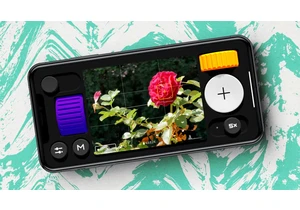It’s the story that has captured the internet’s attention, giving birth to millions of memes: the disastrous “Willy Wonka experience” that took place in Glasgow, Scotland, last month and left children in tears.
The exhibit went viral after photos and testimony emerged suggesting a huge gulf between how the experience was marketed (with glitzy, larger-than-life imagery) and the reality (an empty warehouse, offering as snacks just a handful of jelly beans and a half-cup of lemonade).
But as much as the Willy Wonka experience seems like a particularly egregious stunt, the truth is it’s likely to become the norm going forward as generative AI is used more often in promotional materials.
“Tempting as it may be to use generative AI to quickly, and cheaply, generate marketing materials, the risk of misleading consumers is high, given that the resulting materials are the relevant AI model’s interpretation of prompts describing the product or experience, rather than images of the actual product or experience itself,” says Stuart Smith, a corporate and commercial lawyer at London law firm Simkins.
But, Smith adds, U.K. regulations mandate that advertising must not materially mislead consumers. “The Willy Wonka Experience debacle only emphasizes the importance of that principle,” he says. Indeed, says Ryan Gracey, partner and digital and technology expert at law firm Gordons, the U.K.’s independent advertising regulator, the ASA, maintains authority even over ads created with AI. “If an ad misleads consumers on the product or services offered, the ASA retains its standard enforcement powers,” he says.
The same goes for the U.S., where the Lanham Act and Section 5 of the the Federal Trade Commission Act can both be used to challenge any visual representation deemed deceptive.
The debate over generative AI in advertising, and how closely it mirrors what consumers can actually encounter when they use a service or product, carries echoes of past scandals. In October 2023, McDonalds and Wendy’s defeated a lawsuit brought against both companies over misrepresenting the size of their burgers in advertising content. However, a separate class action lawsuit against Burger King on similar lines has been allowed to progress.
“One court found a TV ad featuring a hand squeezing an orange into a carton constituted a false statement when the orange juice was not fresh-squeezed, but was flash frozen and made from concentrate,” says Northeastern University law professor Alexandra J. Roberts. She also pointed out that other courts have found “literal falsity” based on images altered using tools like Photoshop, including one pool-toy seller’s practice of shrinking images of children to make its toys appear larger in relation to the humans. “If generative AI is used to create images that consumers believe are real, and what they show is false or misleading, then that practice can constitute false advertising,” Roberts says.
But whether people think that the generative AI imagery they see is fully representative of the products or services they’re likely to receive is another question. “If generative AI is used to create images that consumers believe are real, and what they show is false or misleading, then that practice can constitute false advertising,” says Roberts. “On the other hand, some uses of AI might appear more cartoonish—so we might ask whether consumers reasonably believe them to be making a factual claim about the goods or services on offer.”
All of which is to say, consumers need to become more aware of the AI-filled world in which we live. “False advertising images generated using AI are problematic, but so are false advertising images not generated by AI—say, a picture of a different house on Airbnb—and I can’t see any reason the law would treat them differently,” says Kristelia García, professor of law at Georgetown University. “I’d think and hope it would also make consumers more skeptical.”
Perhaps it will in the long run, but that’s little comfort for the kids who just experienced the letdown of their short lifetimes in Glasgow.
Login to add comment
Other posts in this group
Journey with me back to the good old days, if you will. There was a time that, when you’d buy a gadget, it’d come with a sometimes verbose but often helpful “instruction manual.”
Not a q

After more than a week of threats, Elon Musk formally launched the America

TikTok is building a new version of its app for
Copyright lawsuits and ethical debates have led some to say the AI ind

Alphabet’s Google has been hit by an EU antitrust complaint over its

I have not found much joy in iPhone photography of late. Between the flat,

Far-right extremists are exploiting TikTok’s “use-this-sound” feature as a Trojan
